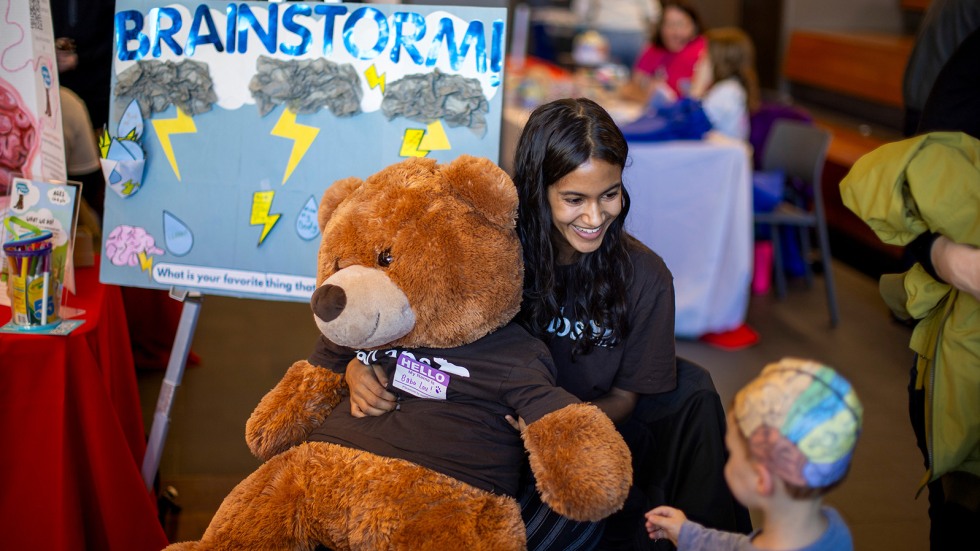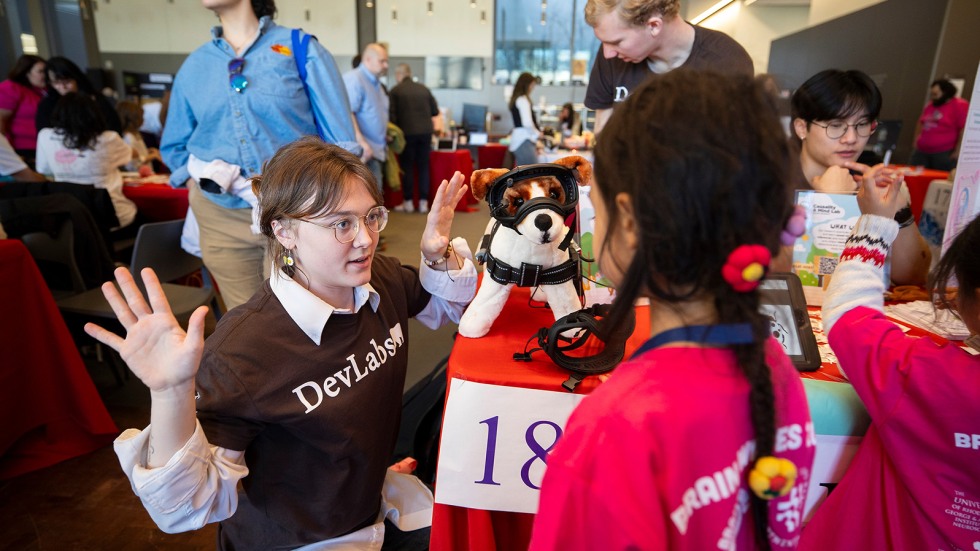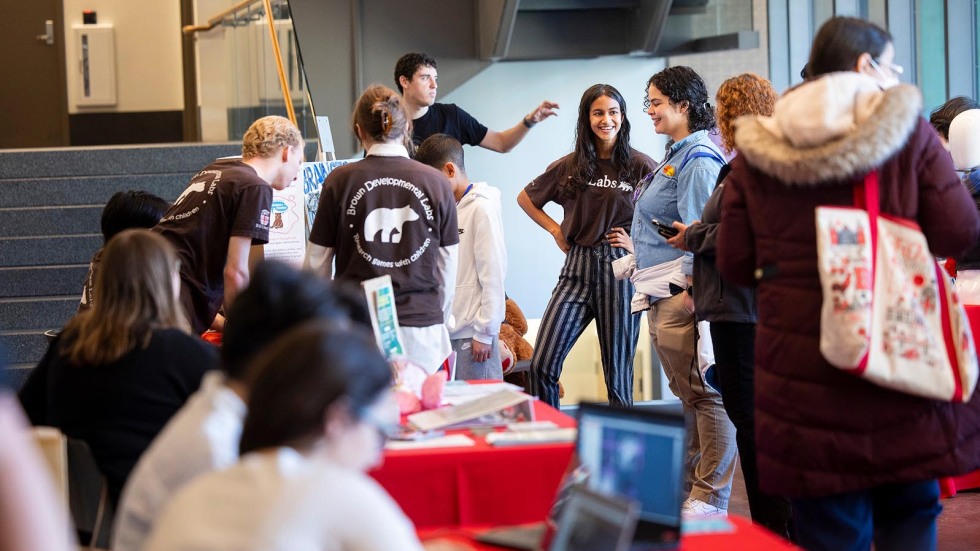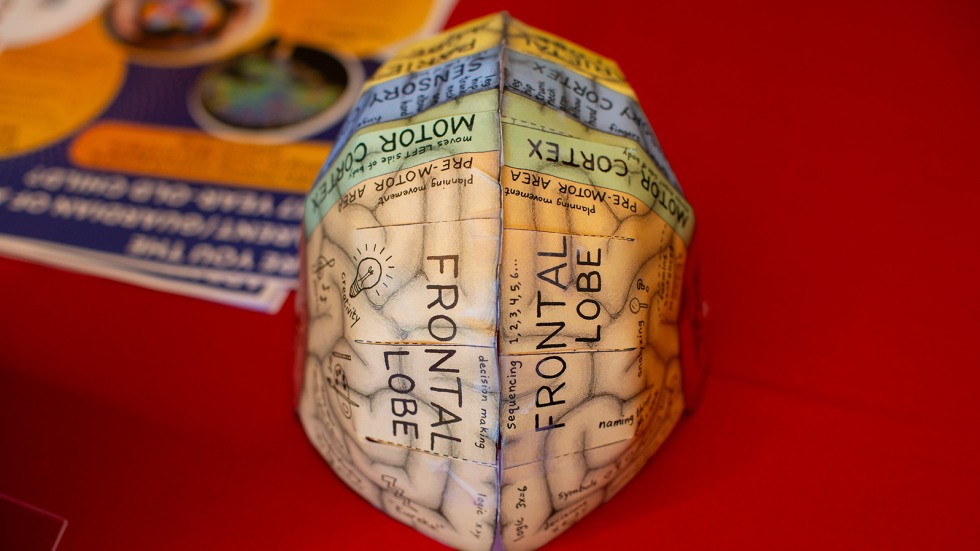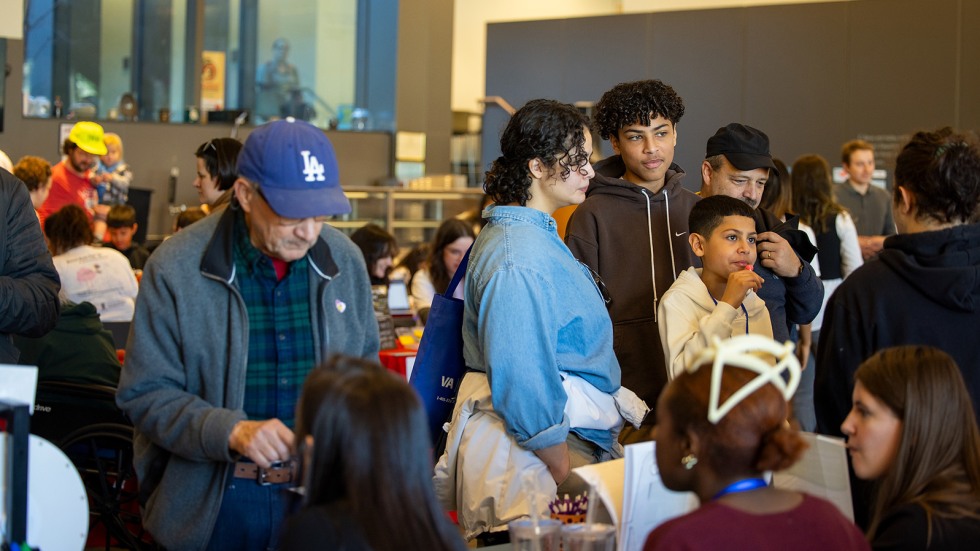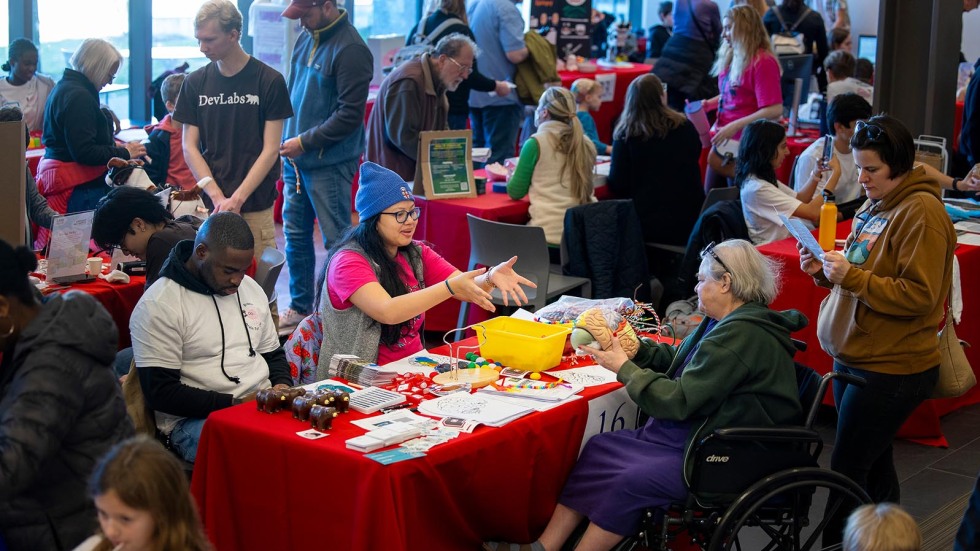PROVIDENCE, R.I. [Brown University] — At the 2024 Brown Brain Fair, hundreds of Providence residents, families and kids eagerly flocked to Brown University on a sunny Saturday, ready to embark on a voyage of discovery where science met smiles and curiosity knew no bounds.
Held at Brown’s Engineering Research Center on March 16, the free, all-ages event featured scientists, researchers and volunteers from more than 25 Brown science labs and centers. They offered Rhode Islanders the chance to learn about neuroscience and brain health through interactive stations, hands-on experiments, lively games and engaging lighting talks.
Pawtucket resident Melanie D'Angelo was excited to bring her daughter, Angelina, to the Brown Brain Fair. Angelina's interest in neuroscience started in middle school, and events like the fair fuel her ambitions and showcase the educational and career opportunities available to teens, D'Angelo said.
"It's important for her to see that the students studying neuroscience at an institution like Brown are just regular kids like her," D'Angelo said. "It's not a discipline reserved only for super-brainiacs, which I think is a common misconception among high schoolers. Regular kids can thrive and excel in this field like anyone else."
As a first-year student at the MET High School in Providence, Angelina said she was grateful for the opportunity to meet Brown students and faculty. "I've never been to something like this before. It's new to me, and I love it because it's such a great chance to meet people and explore pathways into this field."
As visitors entered the Hazeltine Commons, Brown researchers and students stood ready to provide an immersive exploration into neuroscience across dozens of tables, kiosks and booths. Kids and teens eagerly lined up, excited for the chance to dive into new dimensions with virtual reality goggles. Many also seized the opportunity to handle a preserved human brain, delving into its intricate workings.
Others engaged in art activities, crafting and coloring brain hats and getting their faces painted with a brain-themed design. At one table, participants could test their knowledge of brain anatomy using MRI images to identify the parts responsible for different behaviors. Another activity, the Visual Illusions Table, featured demonstrations of classical visual illusions, such as a waterfall illusion, providing insights into visual perception.
Faculty and student researchers also led 5-minute mini-lectures, or "Lightning Talks," on brain health and mental illness, including topics such as "The Neuroscience of Depression" and "Stress in the Gut and Mind."
In his talk, "Do we really only use 10% of our brain," John Hernandez, a postdoctoral research fellow in neuroscience, debunked the myth that people only use a fraction of their brain. Hernandez used the example of ordering coffee to illustrate how everyday tasks engage different brain regions, showcasing the specific brain parts required for actions such as ordering, picking up and drinking.
The family-friendly event, organized by the Brown Brain Bee student group in collaboration with the Carney Institute for Brain Science, is held each March in collaboration with Brain Waves Rhode Island — formerly known as Brain Week Rhode Island. It's one of two flagship events celebrating International Brain Week, aimed at increasing public awareness of the progress and benefits of brain research.
Rhode Islanders like Cranston resident Chintan Modi, a scientist at Amgen in Cambridge, Mass., who attended the fair with his 5-year-old daughter, Shomili, see the Brown Brain Fair as a chance to nurture curiosity and wonder in kids.
"I've loved science from a young age, thanks to my dad, a scientist who exposed me to labs early on," Modi said. "It's been a lifelong passion, driving me to pursue it as a career. Exposing my daughter to different subjects is crucial for discovering her interests. Science isn't just cool; it's about solving mysteries, helping others and staying curious. She's very curious, and I want to encourage her excitement and sense of wonder. I'm hopeful events like this will inspire her to continue wondering and exploring."
